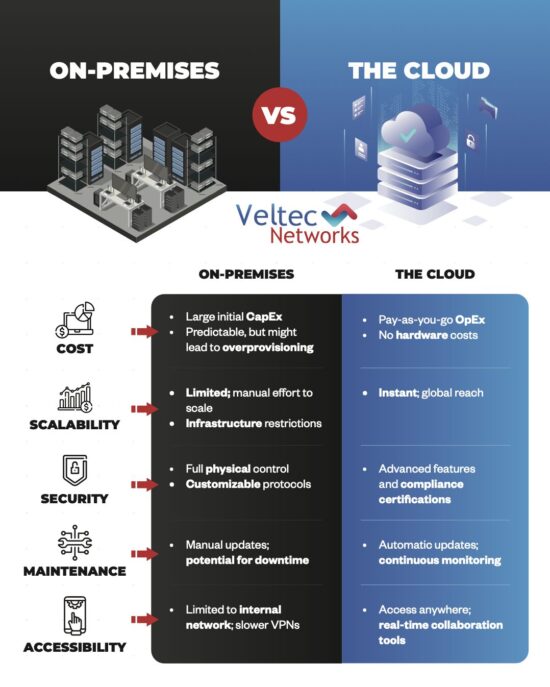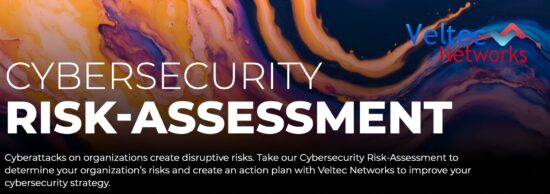The Importance Of Backing Up Your SaaS Data
Software-as-a-Service (SaaS) applications are becoming increasingly popular in the business world year by year. Virtually every business uses them in one form or another, which is why the global SaaS market size is projected to be worth $185.8 billion by 2024.
As businesses use cloud applications and remote-friendly SaaS solutions on a more regular basis, it becomes increasingly important to understand how they work, and what risks they can pose. Case in point: do you know if your SaaS provider is managing data protection and continuity?
The Reality Of SaaS Data Management
Are you aware of your responsibilities as a SaaS user?
Consider the findings of the 2020 IT Operations Survey Report, in which 60% of the respondents claimed that their data is private and secure in the cloud. The problem is, that’s only half true. Furthermore, only one out of three businesses in that survey said they backed up their SaaS application data.
This is a problem — there are clear limitations to SaaS data protection provided by SaaS vendors. That’s why, for the most part, you’re responsible for data management, security and continuity. Considering how many ways your data can be compromised, that’s a big responsibility:
Hardware & Software Failure
Hard drives fail every day for a variety of reasons. While some failures occur simply because the hardware becomes worn out, others fail prematurely due to external factors like:
- Overheating
- Water or fire damage
- Exposure to magnetic fields
- Power outages or surges
- Impact due to being dropped
Similarly, errors with your software can be just as detrimental to your data. Running too many programs at once, or relying on outdated or unstable software can quickly lead to a crash, which will often lose any unsaved work you had open when the program crashed.
Human Error
Every day we create, update, save and delete files; it’s just part of our everyday business life. It’s no wonder that sometimes, we delete files or overwrite files by accident. It’s just the cost of doing business.
Computer Viruses And Malware Infections
There are new viruses that pop up every day that put your data at risk. While being connected to the Internet has its benefits, it also comes with a number of risks that just have to be accepted – malware, viruses, phishing, etc.
They can have detrimental effects (i.e. data loss) if you’re not prepared to deal with them. But, please note, this doesn’t have to be an “end of the world conversation”. Cybersecurity isn’t about being scared enough; it’s about being prepared enough.
Natural Disasters
The fact is that mother nature doesn’t care if you backed up your work or not. A server room flood, vital infrastructure being knocked out by winds and even worse during a major weather event can quickly erase both local and offsite data reserves if your backups aren’t far enough away from your offices.
Cybercriminals
Data loss is often the result of poor digital security; without the right defenses, cybercriminals can easily infect an IT system with ransomware or other types of malware and compromise company data.
Ransomware is likely today’s biggest threat to cybersecurity. You hear about it everywhere, along with a range of possible solutions, most of which are defensive — ways to keep the intruders out before they encrypt your files and send you the ransom note.
You Need To Backup Your SaaS Data
The best way to enhance your SaaS data backup capabilities is with the right backup solution, which offers the following capabilities:
Comprehensive Backups
The backup solution should provide both local onsite backup for quick recovery in instances of data loss, as well as an offsite cloud-based backup for when your business is hit with a critical disaster. Furthermore, these offsite backups need to be protected by a digital air gap, ensuring they are not at risk of encryption in the event of a ransomware attack.
Regularly Tested
You can’t assume that your backups will just work when needed. Your solution should regularly test your backups to verify their effectiveness in the event that something goes wrong with your onsite data.
Convenient Restoration
Don’t settle for clumsy, all-or-nothing backups. You should be able to choose a point in time to restore in the event that the data has been deleted, corrupted, or there has been a malicious intrusion.
Backup Best Practices
Industry leaders agree that backups should follow the “3-2-1” rule; that is, you should have three copies of your data (your production data and 2 backup copies) on two different media (disk and tape) with one copy off-site for disaster recovery.
The key is in finding the right third-party backup solution to keep your SaaS data protected against hardware failure, ransomware, human error, and whatever else may occur.
Do You Have A SaaS Backup Strategy?
If you are unsure about implementing a reliable and comprehensive data backup for your SaaS data, then you need to find an IT partner that can help you out — allow Veltec Networks to assist.
In the end, data continuity is all about prevention. No matter what you do, you cannot start focusing on data backup after your systems have gone down. At that point, it is too late. Take the necessary steps now to protect your data down the road — get in touch with Veltec Networks to get started.






